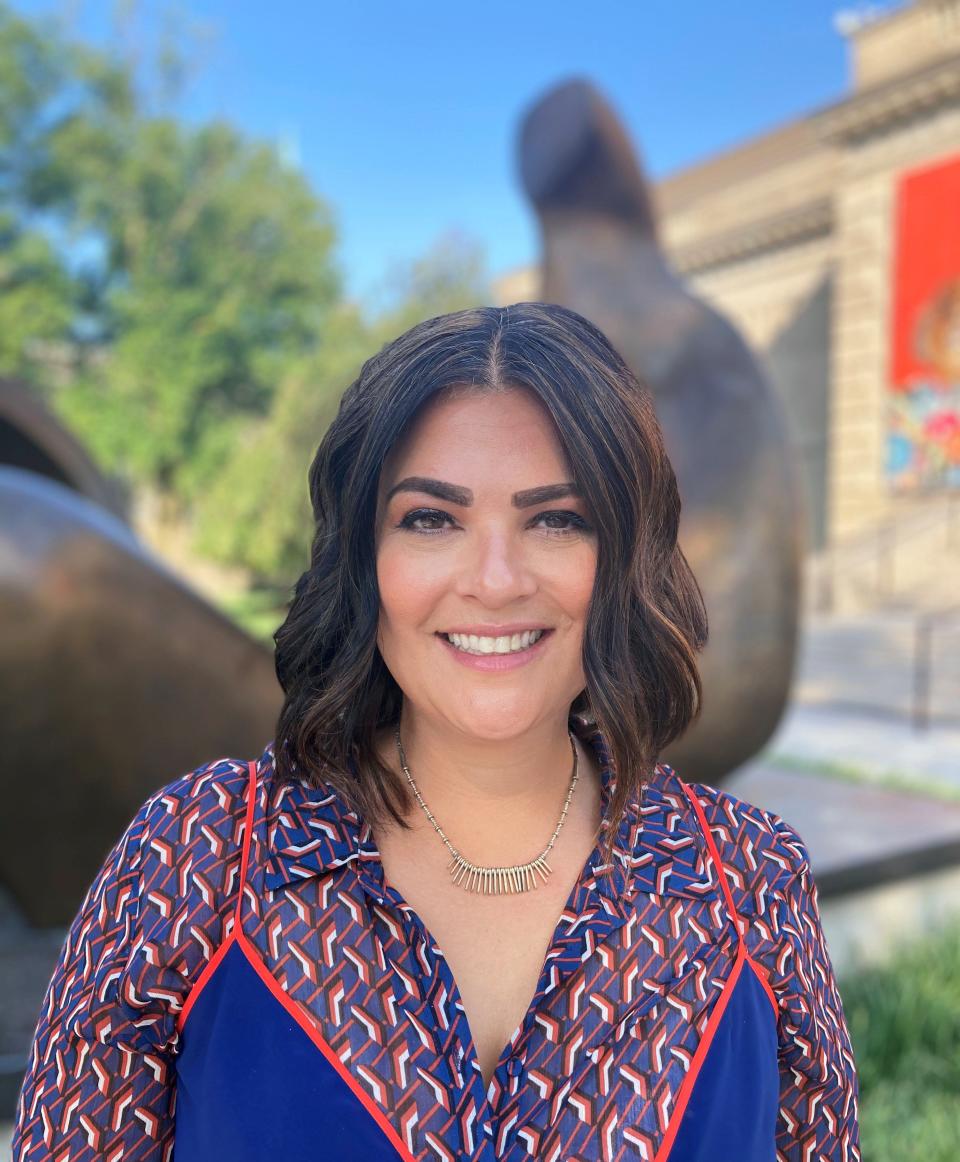'The humanities are our moral compass.' Is there value in English, history degrees? | Opinion
Rebecca Brown Asmo is the executive director of Ohio Humanities, a nonprofit that shares stories to spark conversation and inspire ideas. They host programs and award grants that support storytellers statewide, from museums to journalists to documentary filmmakers.
The humanities are in crisis.
That’s the crux of Nathan Heller’s recent article for The New Yorker, “The End of the English Major,” which is drawing national attention and debate.
Heller, who himself has a humanities degree and says he has never regretted it, takes readers through a masterful case study of why the number of humanities majors have gone into free fall over the past 20 years.
Our view: Ohio State’s next president must serve Ohioans not will of powerful or political
Why is this happening?
The reasons are many.
Some reasons are economic, as the broadening socioeconomic diversity on college campuses means that many students have pressure to monetize their degrees immediately upon graduation to pay back loans. Other reasons are bureaucratic. The F1 visa for international students, for example, allows STEM majors to stay in the U.S. for three years after graduation, while humanities majors can only stay one.
Opinion: Intel, STEM are not our savior. 'Ohio needs to rediscover its soul'
Heller describes walking through a gleaming, billion-dollar STEM complex on Harvard’s campus, while humanities classes are held in uninspiring rooms. It’s not a great advertising campaign for an English degree.
Every year, there are articles or studies like Heller’s declaring the death knell of the humanities—and, occasionally, the dangers of that reality.
An American Academy of Arts and Sciences study, for example, documented data that humanities majors regret their degrees. Meanwhile, a study from Georgetown University overlaid the decline in humanities majors against increases in authoritarianism at home and abroad.
Unfortunately, Ohio is also seeing less interest from college students in humanities degrees. The Ohio State University’s main campus, for example, saw a 46 percent drop in humanities majors between 2012 and 2022.
But make no mistake: The humanities are thriving in the public sphere. And in an ever-divided world where society is having an increasing unwillingness to understand different viewpoints, the humanities have never been more important.
From Archives: Ohio State humanities profs blame university for declining enrollments
The humanities ultimately guide who we are — as individuals, as professions, as communities, as a global society. Medicine, for example, knows whether we can do something. The humanities ask whether we should. The humanities pose the necessary questions that guide us to be the best humans possible.
More: Music unites incarcerated mothers and their children: "It gives me hope for the future"
Every day at Ohio Humanities, we see the wonderful ways that the humanities are essential to communities across Ohio.
Humanities at work in Ohio
We Amplify Voices, a Columbus-based nonprofit, uses the humanities to break down barriers and biases about people who are incarcerated. The group supports women who are serving long or life sentences by documenting their life stories through oral histories taken on video, which are then shown to the public, reminding us of the humanity of incarcerated persons.
The lead pastor at Cory United Methodist Church in East Cleveland is working with preservationists to restore the historic building that serves as the congregation’s sanctuary. It’s a building that has served as a synagogue, community center, and church throughout its history and has hosted Civil Rights icons like Martin Luther King, Jr. and Malcom X. While the building is an historic landmark that memorializes country-altering movements and justice crusaders, it also still serves as a central gathering place for the local residents, reminding us of the continuing power of community.
A community collaborative in Athens is using augmented reality to bring historic buildings back to life to understand where the community’s been—which also begs the question of where it could or should go next. In telling the history of the community, the group has centered high school students in researching and developing part of the project, breeding an appreciation for the power of humanities in new generations.
These examples are just a few of the many ways that Ohio’s communities are using the humanities to share powerful stories, spark meaningful conversations and inspire thoughtful ideas.
The humanities are our moral compass, our soul.
If we lose them, nothing else matters — or will anyone even be able to tell?
Rebecca Brown Asmo is the executive director of Ohio Humanities, a nonprofit that shares stories to spark conversation and inspire ideas. They host programs and award grants that support storytellers statewide, from museums to journalists to documentary filmmakers.

This article originally appeared on The Columbus Dispatch: Is your English, history or philosophy degree worth the paper it is printed on?

